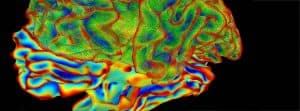The Lavin Agency Speakers Bureau
A speakers bureau that represents the best original thinkers,
writers, and doers for speaking engagements.
A speakers bureau that represents the best original thinkers,
writers, and doers for speaking engagements.
Our focus has been stolen—but we have the power to take it back.
We’re in a focus crisis: we can’t pay attention, and it’s affecting our power to innovate and think deeply. JOHANN HARI says it isn’t our fault, because our focus has been stolen by a system that doesn’t want us to concentrate. We risk losing our ability to finish long-term projects and connect with people around us. Johann’s impactful, profound, vitally human book Stolen Focus—an instant New York Times bestseller named Amazon’s best nonfiction book of 2022—is a deep dive into what we can do to recover our minds. He’ll teach you how to reverse exhaustion, get back your flow states, and forge real relationships at work and in your personal life. Johann’s TED talks have been viewed 80 million times, and he knows how to speak to everyone on your team so that they can achieve their goals and embrace a focused, productive, creative mindset.
“I don’t know anyone thinking more deeply, or holistically, about the crisis of our collective attention than Johann Hari.”— Naomi Klein, author of No Logo
Our inability to focus is keeping us from living great lives and succeeding at work. We are all pulled by too many forces—phones, social media, the internet. So what do we do? Johann has real solutions. We’re exhausted, so we need to pull back and rest our brains. We can’t read like we used to, so we need to concentrate with our books and remove distractions. We don’t allow ourselves the room to brainstorm, so we need time for the practice of intentional mind-wandering.
What we’ll get in return is the workplace of the future. We’ll be able to connect with other members of our team, come up with great new ideas for projects, and see our long-term goals through to the end. Johann says we need to achieve “the opposite of Facebook—standing perfectly still, looking out toward the ocean, with your palms open.” When we tap into that stillness, our minds will be sharpened to do anything we set them to, and we’ll have workplaces and organizations that are ready to innovate and do great new things.
Johann’s approach is warm, passionate, and truly committed to change. He lays out what he discovered during the epic process of writing Stolen Focus, including grappling with his own inability to focus and what it cost him. He combines stories from his own life with what he learned from different people from around the world, including a favela in Rio where attention spans completely vanished to a New Zealand office that solved their focus crisis in a surprising way. The Washington Post calls Johann’s work a “call to arms” to all of us who are worried about what will happen if we spend all of our time on our phones and stop being able to connect to the real world around us.
Johann has spent his life writing about society’s biggest issues. His New York Times bestseller Chasing the Scream tackled our assumptions about addiction and discovered that so many of them were wrong. He realized that the cure for addiction is in solving issues like isolation and poverty—because making people feel like they belong is key. Chasing the Scream was adapted into the Academy Award-nominated film “The United States vs. Billie Holiday.” His book Lost Connections was a powerful reevaluation of depression, which Sir Elton John called an “amazing book that will change your life.”
Johann has also written for the New York Times, Le Monde, The Guardian, the Los Angeles Times, The New Republic, and Slate. He was twice named ‘National Newspaper Journalist of the Year’ by Amnesty International. He was Gay Journalist of the Year at the Stonewall Awards, and was awarded the Martha Gellhorn Prize for Political Writing.
Both sessions with Johann were really incredible, we got such awesome feedback from the attendees. Johann came across exceptionally well, it was an absolute pleasure working with him.
Coronation Fund ManagersJohann Hari is a genius in our midst, a present-day visionary, the likes of which in today's world are rare to nonexistent. We were fortunate to nab him as a keynote speaker before demand for his speaking ability made him unaffordable to non-profits like us.
Above and Beyond Family Recovery CenterJohann Hari is, by far, the most versatile, entertaining, and educational speaker that we have ever encountered. His clear, original thinking and disarmingly authentic presentation lend themselves to just about any topic that baffles the rest of us.
Above and Beyond Family Recovery CenterJohann was nothing short of miraculous. He is like a God to us and he was every molecule the person, live, that we imagined him to be from his writings and interviews. We would have him back in a nanosecond!
Above and Beyond Family Recovery Center
Author of Grit, the #1 New York Times Bestseller | Pioneering Researcher on Grit, Perseverance, and the Science of Success

2024 Nobel Prize Winner | 3rd Most Cited Economist in the World | Bestselling Co-Author of Why Nations Fail and Power and Progress

Harvard Business School Behavioral Science Professor | "40 Under 40 MBA Professor" | Author of TALK: The Science of Conversation and the Art of Being Ourselves

#1 New York Times Bestselling Co-Author of Abundance | Host of thePlain English Podcast | Founder of the Substack Derek Thompson

#1 New York Times Bestselling Author of How the Word Is Passed and Above Ground | The Atlantic Staff Writer


Were you always told to multitask in the office? Has multitasking taken over office culture? Award-winning author Johann Hari says that multitasking is actually detrimental to our work. In this insightful and dynamic keynote, Johann will break down the myth of multitasking and why society has come to value it so much. Packed with information that will help you choose to focus on a single task over multitasking and real-world solutions that can be applied immediately, Johann will transform not just employee habits, but the work culture to promote greater success, productivity, and collaboration.

There was a mystery haunting award-winning investigative journalist Johann Hari. He was thirty-nine years old, and almost every year he had been alive, depression and anxiety had increased in Britain and across the Western world. Why? In this eye-opening talk, Johann shares the incredible forty-thousand-mile journey he took across the world to interview the leading experts about what causes depression and anxiety, and what solves them.
His findings are all shared in his bestseller Lost Connections, and in its companion TED Talk with over 20M views!). He outlines nine research-backed causes of depression and anxiety―and that this knowledge leads to a very different set of solutions: ones that offer real hope. An empathetic investigation of a worldwide issue, this talk will leave your audience hopeful, fascinated, and full of knowledge that can help all of us—whatever our experience with depression and anxiety—to make our lives more connected and psychologically healthy.

For award-winning author Johann Hari, drugs have always been personal. One of his earliest memories is of being unable to wake a relative. Since then, he’s watched loved ones struggle with addiction, all the while believing in the basic story about drugs and dependency echoed by our teachers and governments. That is, until he set out to find his own answers. Embarking upon a 30,000-mile, 12-country journey to really understand the war on drugs, Johann uncovered a much different narrative—that everything we’ve been told about addiction for the past 100 years is wrong.
As Johann learned, emerging science proves that addiction isn’t actually caused by drugs, but by conditions of social isolation and pain. Addiction isn’t the result of a moral failing or depravity, or the inevitable result of a chemical dependency, but a product of our social environments. This means we need to pursue a radically different approach to addicts. “The opposite of addiction is not sobriety,” Johann writes. “It is human connection.” We must abandon conventional cycles of shame, stigma, and incarceration, and instead adopting greater capacities of compassion.
In this eye-opening talk, Johann discusses the landmark studies that demonstrate the connections between addiction and environment. He investigates the countries that have witnessed incredible success by accepting these findings: plummeting rates of drug use, addiction, violent crime, overdoses, and more. And he issues a call to treat the addicts in our lives much differently, changing both our politics and our hearts. Combining the best social science with vividly human anecdotes, this is a transformative talk about what it means to be addicted, and what it means to recover.

While writing the bestselling book Chasing the Scream (later adapted into an Academy Award-nominated film), Johann Hari discovered that the drug war has very different motives and results than those described by our businesses and governments. Not only has strictly enforced prohibition claimed countless victims to incarceration, poverty, and murder around the world, but it’s actually led to more addicted users—the opposite of its touted purpose.
In this keynote, Johann traces the development of a global moral injustice, highlighting the previously untold story of how Billie Holiday was stalked and killed by the founder of the war—and what this tells us about what’s motivated it ever since. He relates the stirring testimonies of people whose lives have been transformed by ill-conceived policies, and the doctors and activists resolutely trying to change them. And he talks, with inspiring examples, on the alternative policies that show a clear way forward.
From the killing fields of northern Mexico, home of some of the world’s most dangerous cartels, to the teeming US prison system, to nations like Portugal that choose to pursue innovative solutions, this keynote condenses Hari’s years of deep reporting into a riveting talk on the war on drugs: its human and economic tolls, and its compassionate, economically sound solutions.